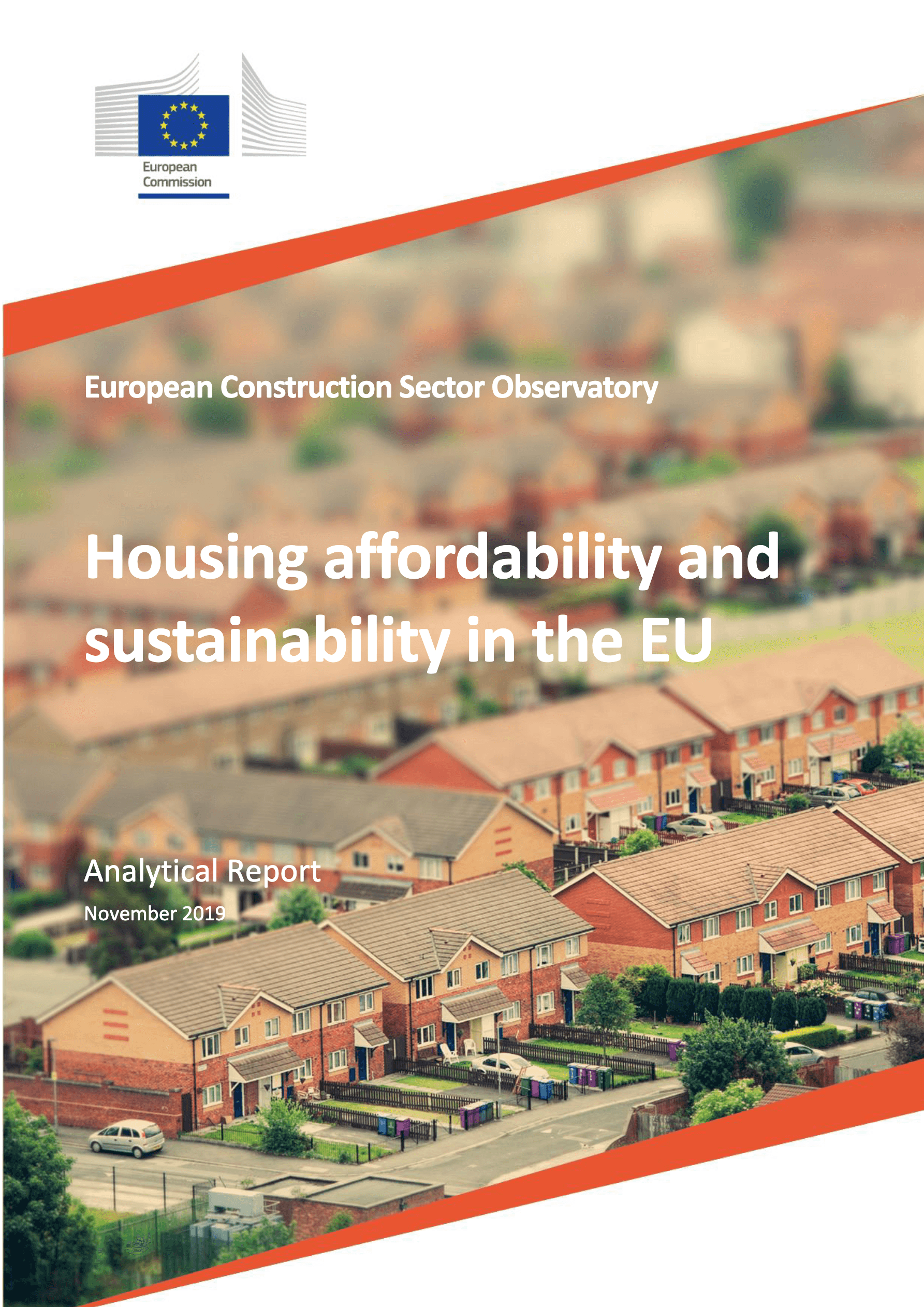Context and Purpose
This analytical report, titled "Housing Affordability and Sustainability in the EU," was created by the European Construction Sector Observatory (ECSO) and published in November 2019. It aims to provide insights into housing affordability and sustainability, highlighting challenges and policy initiatives across the European Union. The report emphasizes the growing concern over housing affordability as house prices continue to rise, particularly in urban areas, thereby impacting socio-economic mobility and living conditions for many citizens.
Key Findings on Housing Market
The report reveals that housing prices in the EU have generally increased, with urban areas experiencing significant demand pressures. Between 2010 and 2017, the EU-28 house price index rose, with the largest increases seen in Estonia, Sweden, and Latvia. Conversely, some countries like Spain and Italy saw a decline in prices. Despite overall income growth, house price increases often outpace income, exacerbating affordability issues for low- and middle-income households. In 2017, approximately 10.4% of the EU population faced housing cost overburden, spending more than 40% of their disposable income on housing, with Greece leading at 39.6%.
Drivers of Housing Affordability
Key drivers for sustainable and affordable housing identified in the report include sustainable urban planning, fiscal measures, and financial instruments. Sustainable urban planning focuses on integrating housing within broader development strategies that prioritize economic, social, and environmental sustainability. Fiscal measures, such as tax incentives for energy efficiency, have been shown to improve affordability by reducing long-term energy costs for households. Financial instruments like shared equity loans help first-time buyers access housing.
Obstacles to Affordability
Despite these drivers, several obstacles impede progress towards affordable housing. Urbanization increases demand while supply constraints, such as land availability and regulatory barriers, limit new construction. Additionally, inadequate investment in affordable housing has resulted in a significant funding gap of approximately EUR 57 billion annually. The report highlights that political dynamics often influence housing policies, which can be a barrier to reform.
Policy Initiatives
The report categorizes policy initiatives into four main areas: acquisition of affordable housing, rental housing promotion, investment in social housing, and housing allowances for low-income households. Many EU countries favor policies that provide indirect benefits, such as favorable lending conditions for homebuyers. Direct benefits, like grants and subsidies, are less common but are crucial for targeting lower-income groups. For instance, the Housing Partnership Action Plan in the EU emphasizes the need for a comprehensive strategy to improve housing access and affordability.
Sustainability Measures
Sustainability plays a crucial role in the report's findings, with emphasis on energy efficiency and climate adaptation in housing policies. The report discusses various initiatives aimed at improving the energy efficiency of buildings, which can lead to cost savings and enhanced living conditions. However, challenges remain, particularly in balancing energy upgrades with potential rent increases.
In conclusion, the report serves as a comprehensive overview of the current state of housing affordability and sustainability in the EU, offering valuable insights and recommendations for policymakers to address these pressing challenges.
